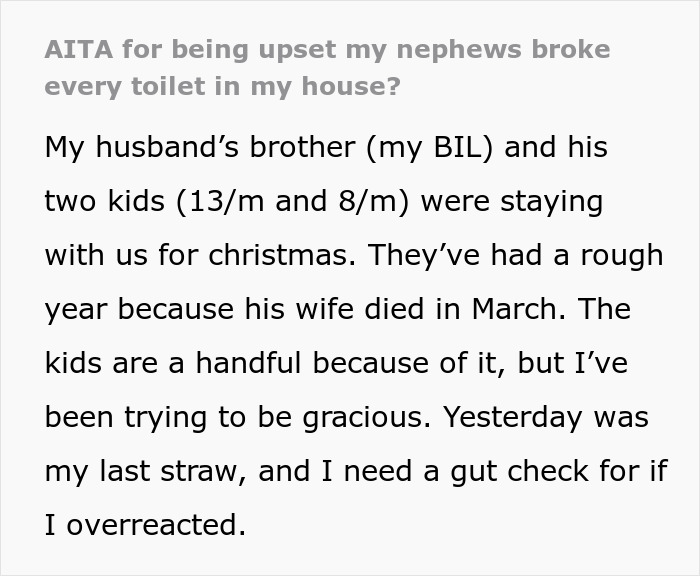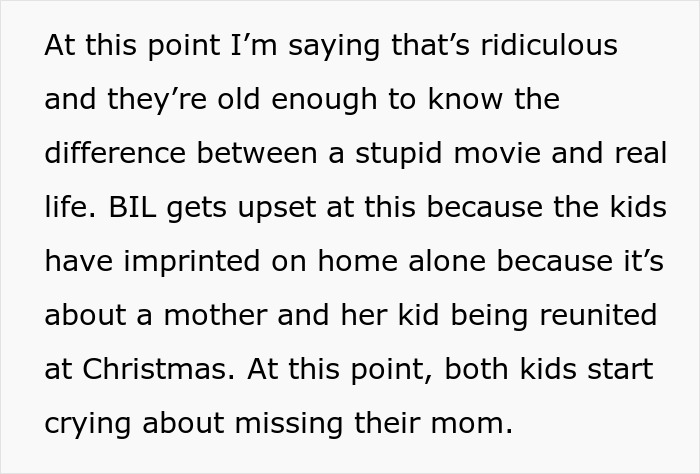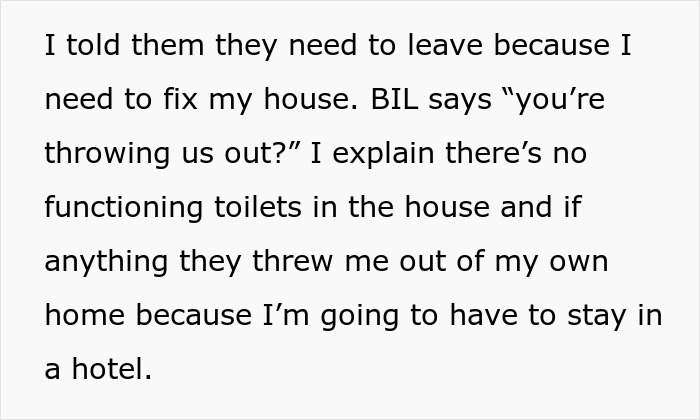
Aunt thinks she was wrong to ask her grieving nephew to leave the house after he pranked and broke all the toilets
Losing a loved one – a parent or sibling – is an unimaginable pain. Life wouldn’t be the same without them. And everyone grieves in different ways.
But that raw grief shouldn’t be used as an excuse to make someone else’s life even worse. dramatic situation at her homeHer stepbrother’s children lost their mother earlier that year and were still grieving. During their stay at the redditor’s house, they pranked and completely destroyed three toilets, making it appear as if the “boiling water bandits” had made a mistake.
The OP got mad at them and turned to the internet for a verdict on whether or not she overreacted.In the redditor’s own words, read the full story.
bored panda reached out to comedy writers Ariane Shereenthe author of “How to be happy”. She was kind enough to share some insight into pranks and the role humor plays during grief.
Everyone grieves differently.However, some behavior is completely unacceptable
Image credit: Timur Weber (not actual photo)
Woman whose grieving nephew watched Home Alone and wrecked her house inspired by the movie
Image credit: etrtr (not actual photo)
Image credit: 20th Century Fox
Image credit: xmasiatah2020
As brutal as it may sound, grief is not a blank check that allows people to do whatever they want. There are clear limits, including harming other people or their property. Likewise, the practical joke is clearly overkill. cause visible harmIf someone is not laughing, they are probably failing.
The author of AITA’s story felt conflicted about calling his nephew, considering he had recently lost his mother. But she also felt that she had to make her own boundaries very clear: after all, they broke all the toilets in her house and called them “boiling water bandits.” I tried to pin it to This is the first time I’ve heard that “Home Alone” inspired children to play so many pranks.
Bored Panda got in touch with British comedy expert Ariane. She answered our question about where the boundaries lie when playing pranks on others and shared her insight into the relationship between humor and grief.
“For me, the line is whether it can cause serious harm or upset,” the author of “The How of Happy” told us. added that the pranks have also gone too far, as they are causing “great inconvenience”.
“Destroying other people’s property and paying large fees falls into this category,” she explained.
Everyone grieves in a different way, so it’s likely that we look at comedy in a different light. For example, some people may feel guilty for laughing, having fun, and enjoying life even weeks, months, or even years after the death of a loved one. Others, on the other hand, prefer comedy.
We asked comedy expert Ariane for his opinion on the role of humor in a very difficult time.
“I think humor gives us perspective. Seeing the bright side of life makes the dark side less bleak,” she told us.
“When you’re laughing, you can’t cry, you can’t be scared, you can’t be sad. Only in the moment.”
Bored Panda used to be spoke of sorrow With psychotherapist Silva Neves. He answered our questions in an earlier interview. He emphasized the fact that people actually grieve in different ways.
“Some people grieve by crying a lot, others by being practical. It lasts as long as there is no time limit,” he explained to us.
“Generally, grief diminishes over time, meaning that people become less upset over time, but some people never ‘recover’ from grief.” Especially those who have lost someone very important to them. Most people learn to live with grief and sorrow. Important dates such as anniversaries can always be painful,” said the psychotherapist.
“Although there is some general knowledge about grief, such as the ‘stages of grief’, many people do not follow the ‘stages’ of grief because grief is complex and unpredictable. The best way to support them is to sit with them and listen,” he told Bored Panda.
“It’s also important not to say, ‘I know how you feel,’ because grief is so unique and no one can know how someone else’s grief will feel. , get a lot of support at the initial grief of loss, but often stop talking after a while.”
“People who are grieving usually appreciate friends asking about it, even after a year or two. Don’t be afraid to ask, ‘How are you doing?’ Allow the grieving person to speak. Ask what you need, but don’t assume what you need. Sometimes a grieving person needs a hug, but other times they need to sit in silence. Sometimes you need to be distracted, and sometimes you want to talk about your pain. ”









